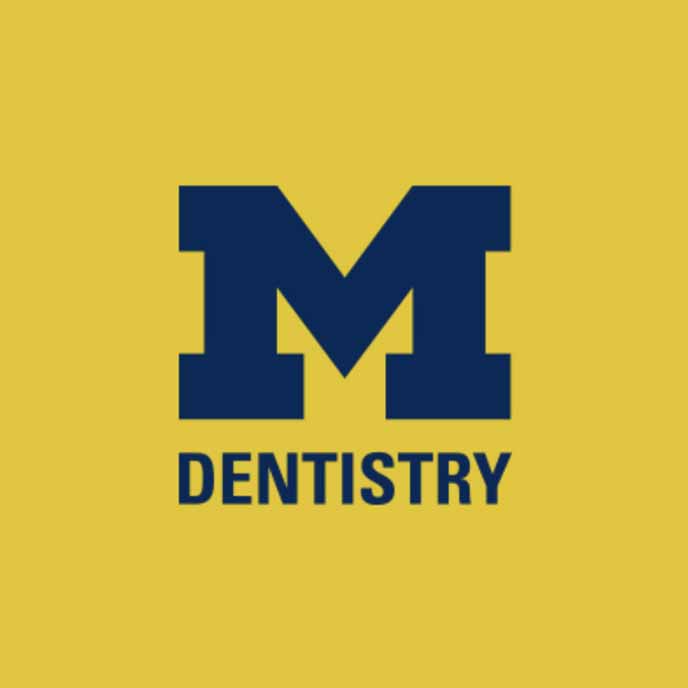Mini-Residency Program
Register today!
We are offering Mini-Residency in dental sleep medicine for licensed
dentists, providing more than 100 hours of CE credit. This course prepares participants to take the American Board of Dental Sleep Medicine (ABDSM) boards and consists of Mastery 1 and 2 components, transpiring over a 1-year time period.
Registration will be open from April 20, 2025, to March 1, 2026.
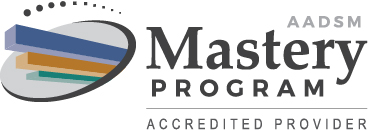
Introduction
The University of Michigan School of Dentistry is offering a Mini-Residency in dental sleep medicine for licensed dentists, providing over 100 hours of CE credit. This evidence-based program will expand participants’ understanding of sleep and sleep-related breathing disorders, competence to treat snoring and obstructive sleep apnea with custom oral appliance therapy. Participants will gain confidence working with patients, physicians, and medical insurance.
The Mini-Residency is accredited by the American Academy of Dental Sleep Medicine (AADSM). Participants successfully completing Mastery 1 will be eligible to become a Qualified Dentist through the AADSM. Participants successfully completing Mastery 2 will be eligible to take the board to become Diplomates of the ABDSM.
Program Description
The program consists of pre-recorded lectures, in-person clinical training, live streaming review sessions, and self-guided study elements. Important parts of the program are two weekend sessions that must be done in person at the University of Michigan School of Dentistry.
Lectures are given by leading University of Michigan faculty and clinicians. Most lecture material will be available on line, accessible at the participant’s convenience.
The in-person weekend sessions are devoted to clinical training and clinical demonstrations. Participants will learn, step-by-step, dental sleep medical procedures, using themselves as a patient in the process. Participants will also have the opportunity to visit the University of Michigan Sleep Disorder Center.
Guided self-study includes pre-recorded lectures, quizzes, video demonstrations, literature reviews and competency assignments. Participants will complete two guided cases on patients in their home practices, which will involve fabricating and delivering oral appliances. We offer weekly reviews of the literature in preparation for the board.
Mastery 1 examines fundamental concepts of sleep, sleep disorders, comprehensive examination skills, and practical techniques necessary to incorporate oral appliance therapy (OAT) into a general or specialty dental practice. Participants will learn the AADSM standards of clinical practice necessary to perform patient screening, examination and record acquisition to begin treatment with competence and confidence. Successful graduates of Mastery 1 will be eligible to achieve “Qualified Dentist” status, a term that is recognized not only by the AADSM, but also by the American Academy of Sleep Medicine and many medical insurers. During the Mastery 1 in-person clinical session, participants will pair up to take impressions and protrusive bites to fabricate appliances for each other.
Mastery 2 builds on the knowledge and clinical proficiency gained in Mastery 1 with continued emphasis on skill development. In the clinical session, participants will deliver appliances on each other. They will gain clinical competence and confidence with delivery and titration methods. Breakout sessions will cover such things as device design and selection. Lectures will develop a more in-depth understanding of normal sleep and the consequences of poor quality sleep. Exploring alternative treatments such as surgery and CPAP will lay a foundation for guiding patient decision making and anticipating combining therapies for best outcomes.
Both Mastery 1 and 2 are necessary prerequisites for the dentist to be eligible to apply for the board offered by the ABDSM. Successful passing of the board exam allows a participant to become a diplomat of the ABDSM.
See the course brochure here.
Course Schedule
2025-2026 Mini-Residency in Dental Sleep Medicine
Mastery 1
- Online pre-recorded lectures (November 1, 2025 – March 8, 2026)
- In-person demonstrations and hands-on clinical training (March 21-22, 2026; 8:00 am-5:00 pm)
Intersession
Live online session (May 9, 2026, 9:00 am-12:00 pm ET)
Mastery 2
- Online pre-recorded lectures (March 30, 2026-June 12, 2026)
- In-person sessions (June 13, 2026; 8:00 am-6:00 pm & June 14, 2026; 8:00 am-3:00 pm)
Postsession
Live online session (July 25, 2026, 9:00 am-12:00 pm ET)
Board Review
Live online session (TBA: 2-6 weeks prior to Board Exam)
Important Deadlines
Registration Window: April 20, 2025 - March 1, 2026
For Mastery 1:
- November 1, 2025: Online presentations, assessments and assignments become available
- March 18, 2026: All on-line assessments and assignments must be completed by this date
- March 21-22, 2026: In Person Clinical Training
- May 3, 2026: Deadline to complete the AADSM quiz to receive “Qualified Dentist” status
For Mastery 2:
- March 30, 2026: Online presentations, assessments and assignments become available
- June 13, 2026: All on-line assessments and assignments must be completed by this date
- June 13-14, 2026: In Person Clinical Training
- October 18, 2026: Deadline to complete Mastery 2 assessments, readings and assignments. You will be board eligible to take the winter ABDSM exam (Jan. 2027)
Why Michigan?
- Expertise: Courses are taught by 11 U-M faculty representing the Schools of Medicine and Dentistry.
- Over 17 advanced education degrees and 15 board certifications are represented in this group, as well as directorships of 11 different advanced speciality and clinical programs. Faculty have won numerous awards for excellence in teaching. Two faculty have been full-time private practitioners in Dental Sleep Medicine for more than 28 years.
- Limited class size.
- Held at the newly-renovated University of Michigan School of Dentistry.
- Clinical instruction will occur in the School’s newly completed Advanced Clinical Education (ACE) facility. This facility consists of 20 semi-private dental chairs, providing hands-on opportunities to learn techniques for examinations, bite registration, digital and PVS impressions, fitting and adjusting of oral appliances and morning aligners and intra-oral photography.
- During in-person sessions, participants will work with a partner to complete clinical competencies and make a personal oral appliance.
- Representatives from dental laboratories and suppliers that specialize in dental sleep medical products will share products and services.
- Course participants will visit the Sleep Disorder Clinic to see how polysomnography studies are performed and have the opportunity to discuss sleep study details with a Registered Sleep Technologist.
- One of only two American Academy of Dental Sleep Medicine accredited Mastery Program providers. Accredited program attendees are eligible to earn AADSM Qualified Dentist designation and can apply for the ABDSM certification exam.
- Program includes board reviews and study groups.
What Our Former Students Are Saying About the Course:
Course Details and Logistics
The Mini-residency is divided into two parts, Mastery 1 and Mastery 2, transpiring over a 1-yr time period. Both Mastery 1 and 2 consist of required readings, on-line lectures, and in-person clinical sessions.
The Mini-residency has been tailored to provide: (1) evidence-based practice standards, (2) the convenience of learning on-line, (3) valuable in-person, hands-on practice of clinical skills, (4) the opportunity to fabricate a custom appliance to fit you, the participant, (5) sufficient in-person and live CE hours to meet the requirements of dental boards, (6) an opportunity to build networks with peers, educators, and vendors through study groups and discussion boards.
The Mini-Residency also requires several clinical competency assignments that will require patient interaction in the participant’s home office. Participants will receive detailed instructions and guidance with these assignments.
Mastery 1 consists of
- 31 on-line lectures and associated quizzes (quizzes contain content and style similar to questions that appear on the AADSM Qualified Dentist exam and the ABDSM board exam)
- 6 in-person lectures
- 4 clinical competencies
- 22 clinical science articles
Mastery 2 consists of
- 19 on-line lectures and associated quizzes (quizzes contain content and style similar to questions that appear on the AADSM Qualified Dentist exam and the ABDSM board exam)
- 2 in-person lectures
- 2 clinical competencies
- Small-group case studies and device round tables
- 19 clinical science articles
- Field trip to the University of Michigan Sleep Disorders Center
- Question and answer sessions
- Guest lectures addressing participant interests
- Board review
- Discussing clinical cases from participant’s home clinics
Our faculty
Our courses are taught by eleven University of Michigan faculty representing the Schools of Dentistry and Medicine. These are faculty heavily invested and successful in teaching and in clinical practices. They are the University of Michigan’s leaders and experts in the topics they teach in the Mini-Residency.
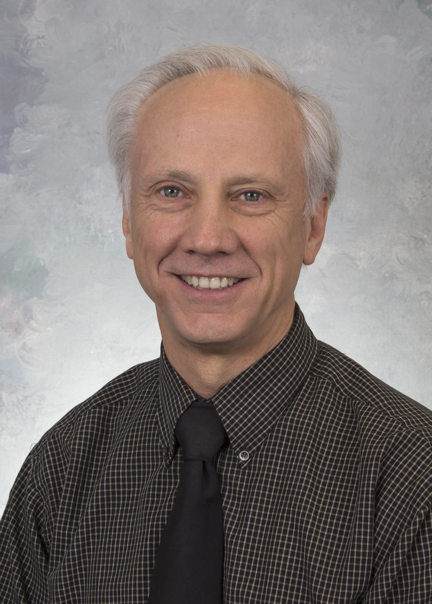
Geoffrey E. Gerstner, DDS, MS, PhD, D.ABDSM
Dr. Gerstner is Director of the Mini-Residency. He holds a BS in Zoology and did an MS while simultaneously obtaining a DDS degree at UCLA. He subsequently pursued graduate training through an individual NIH Dentist Scientist Award. He studied Orofacial Pain management at the UCLA School of Dentistry and obtained a PhD in Neuroscience through the UCLA School of Medicine. His graduate work won the AADR Hatton Award.
Dr. Gerstner has mentored 160 undergraduate students, 66 graduate students and 5 post-doctoral research investigators. Dr. Gerstner's current research focuses on the motor control of chewing, and on clinical studies related to obstructive sleep apnea. He is funded by the AADSM to study the validity of over-the-counter consumer products marketed for use in home obstructive sleep apnea screening and assessment.
Dr. Gerstner is Director of the Sleep Apnea Clinic at the University of Michigan School of Dentistry. His practice is limited to treating obstructive sleep apnea and is located in Graduate Prosthodontics and in Hospital Dentistry. He holds DDS licenses in Michigan and California.
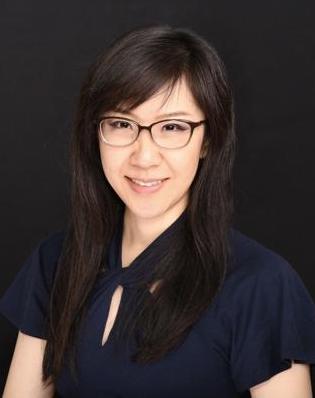
Ivy Wei, DDS, MS, PhD
Dr. Wei is the co-director of the Mini-Residency and a prosthodontist with a diverse background in dental medicine, oral biology, and biomaterials. She earned her dental degree and completed her advanced postdoctoral training in restorative dentistry in China before pursuing a PhD in oral biology and dental biomaterials at the University of Hong Kong. Her research is focused on bio-integration, tissues regeneration, and the management of infections associated with dental implants, dental ceramics, and dental fillings.

Neeraj Kaplish, MD
Dr. Kaplish is Clinical Associate Professor of Neurology and Sleep Medicine. He is the Director of the Sleep Medicine ACU and Michigan Medicine Sleep Disorders Laboratories with Board Certification in Neurology, Sleep Medicine and Clinical Neurophysiology. He is currently or in past has held leadership positions within Michigan Medicine, in the state of Michigan and nationally.

Elizabeth R. Hatfield, DDS, D.ABOP
Dr. Hatfield is the Director of the University of Michigan Orofacial Pain and TMD residency and specialty program. She earned her Doctor of Dental Surgery (DDS) from the University of Michigan in 2017 and completed the general practice residency (GPR) at Michigan Medicine in 2018. Following this, she was the first person to complete the TMD & Orofacial Pain Residency at Michigan Medicine in 2020 and is currently a Diplomate of the American Board of Orofacial Pain.
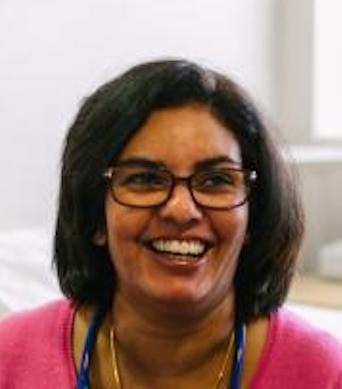
Fauziya Hassan, MBBS, MS
Dr. Hassan is Clinical Professor with specialty training in Pediatric Pulmonology, Sleep Medicine, and Pediatrics. She did her pediatric residency at Texas Tech Health Science Center and her fellowship in pediatric pulmonology at the University of Michigan. She is the Director of Refractory Sleep Apnea clinic at the University of Michigan as well as the Co-director of the Pediatric Home Ventilator Program and the Spinal Muscular Atrophy Clinic at the University of Michigan.
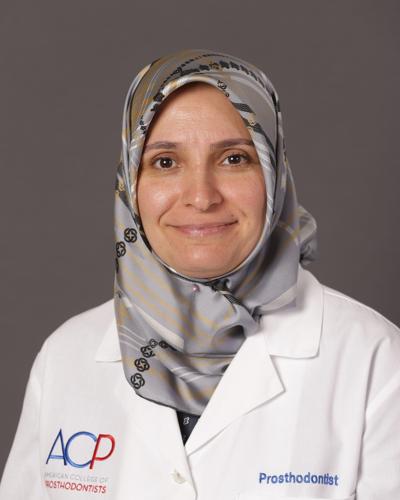
Berna Saglik, DDS, MS, D.ABDSM
Dr. Berna Saglik received her DDS degree from Marmara University in Istanbul, Turkey, and MS in prosthodontics from the University of Michigan School of Dentistry. Upon graduation she started working as a full time faculty member. She is currently teaching in the graduate prosthodontics clinic as well as directing Removable Partial Denture course for sophomore dental students.
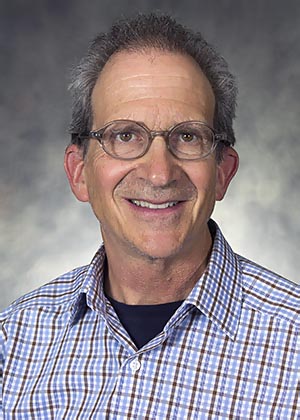
Earl K. Bogrow, DDS, D.ABDSM
Earl K Bogrow DDS is a 1979 graduate of the U-M School of Dentistry and 1975 undergraduate B.S from University of Michigan. He has had a private general dentistry practice in Southfield, Mich., since 1981. Currently, he dedicates his private practice to Dental Sleep Medicine in the treatment of Obstructive Sleep Apnea and Snoring with Oral Appliance Therapy. He has also trained as a Buteyko breathing method clinical certified instructor.
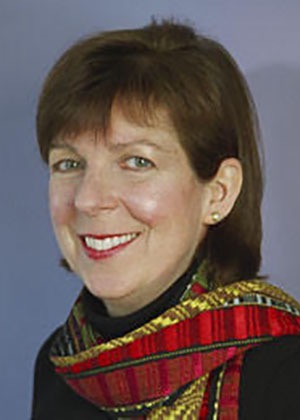
Regina Mackiewicz-Dailey, DMD, D.ABDSM
Dr. Regina Mackiewicz-Dailey is an accomplished dental professional with over three decades of experience. She is an Adjunct Clinical Assistant Professor in Cariology Restorative Sciences and Endodontics, and Biologic and Materials Sciences and Prosthodontics. She has been a Diplomate of the American Board of Dental Sleep Medicine since 2008.
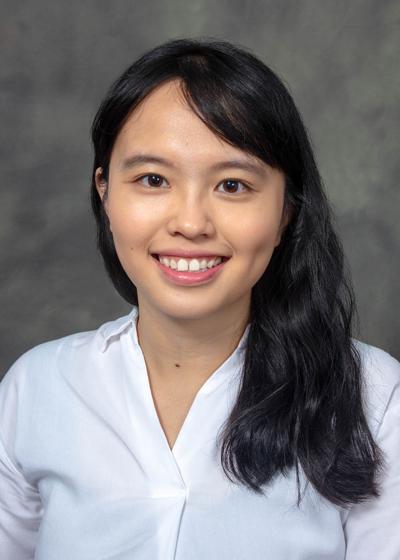
Sieu Yien (Ashley) Chiam, DDS, MSD
Dr. Sieu Yien (Ashley) Chiam earned her Doctor of Dental Surgery degree from National Yang-Ming University in Taipei, Taiwan, in 2016. Following her graduation, she further developed her skills through postdoctoral training in a hospital setting and years of dedicated private practice. Fueled by her passion for elevating patient care and her unwavering pursuit of knowledge, she enhanced her expertise by undertaking Graduate Prosthodontics training at the University of Washington from 2020 to 2023.

Hsiao Hsin Sung, DDS, MS, D.ABDSM
Dr. Sung earned her DDS degree from the School of Dentistry, University of Chile in Santiago where she also completed her Oral and Maxillofacial Surgical Residency and a Master's Degree in Biological Science. She has received advanced training in dental implantology and specialized in oral maxillofacial trauma. Clinical Specialization: Dr. Sung's clinical interests include trauma, pathology, regenerative medicine and dentoalveolar surgeries.
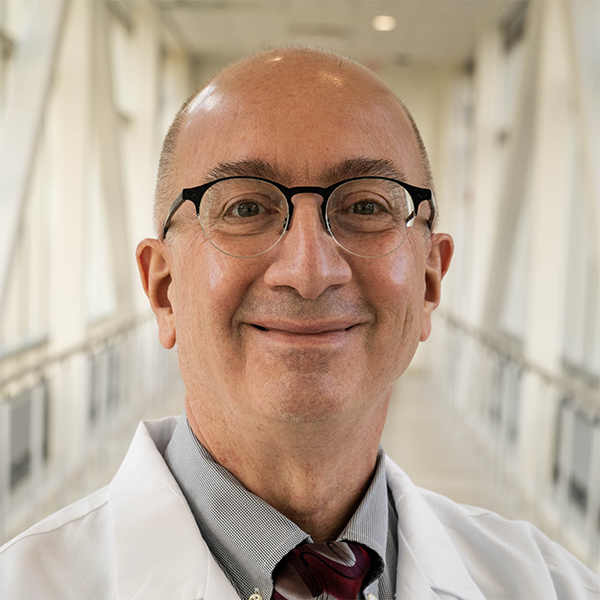
John David Bisognano, MD, PhD
Dr. John Bisognano is a Clinical Professor of Internal Medicine and Interim Chief of the Division of Cardiovascular Medicine. Dr. Bisognano earned his bachelor's degree from MIT, his MA in chemistry and PhD in physical chemistry from SUNY-Binghamton University, and his MD from SUNY-Upstate Medical College. Dr. Bisognano completed his internal medicine residency at the University of Michigan where his interest in cardiology and hypertension was ignited by Dr. Stevo Julius. After completing a fellowship in hypertension, Dr. Bisognano moved to Colorado to complete a fellowship in cardiology and advanced heart failure and transplant at the University of Colorado.
Dr. Bisognano sees patients on the inpatient cardiology services, the inpatient consultative service, and in outpatient clinics. His area of specialty includes general cardiology, as well as severe and resistant hypertension, lipid management, and management of patients with chronic heart failure and ischemic coronary and vascular disease.
A significant part of Dr. Bisognano’s career has been dedicated to general cardiology. He has a longstanding interest in severe and refractory hypertension including device-based therapies for hypertension and is the author of more than 115 journal articles, three books, and numerous book chapters. Dr. Bisognano has served as PI on an NIH R01 grant related to behavioral interventions in people with mild hypertension. He currently serves as co-investigator on an NIH R61/R33 grant for community-based interventions in hypertension.
Dr. Bisognano has served as President of the American Society of Hypertension, Vice-Chair of the American Heart Association Council on High Blood Pressure, Upstate New York State Governor of the American College of Cardiology, and President of the New York Cardiovascular Society.
Dr. Bisognano has been recognized with numerous honors and awards including the University of Rochester Kuhn Teaching Fellowship for Outstanding Medical Student Teaching, the University of Rochester Medical Center Board Excellence Award, and the American Heart Association Arthur J. Moss Award.
Teaching Methods, Learning Resources and Technology
Mastery 1 and 2 will be presented as recorded lectures, assigned readings, demonstration videos, clinical-based training and competency assignments. Participants will have access to several live Q & A sessions and a digital Q & A discussion board.
● Required Textbook: ○ None
● Online Lectures
○ On-line lectures will be set up through Canvas and available for 1 year to registered participants. On-line course materials will be presented in modules comprising 3-5 close-captioned video lectures. The lectures are typically 1-hr in length. Lectures are accompanied by brief quizzes or assignments to test your competency with the material. You must watch the videos and successfully pass the quizzes or complete accompanying assignments to pass the course. Asynchronous lectures are all pre-recorded to view at your convenience before, during and after the course.
Learning Objectives
Upon completion of Mastery Course I, attendees will be able to:
1. Develop a critical understanding of the physiology of healthy sleep and the pathophysiology of sleep-disordered breathing (SDB) and its relationship to clinical application.
2. Describe demographics, predisposing factors, signs and symptoms, and co-morbidities of SDB and various techniques to identify patients at risk.
3. Immediately establish an effective screening protocol and medical referral network with inner office systems to streamline and document referrals.
4. Identify patients at risk for SDB, perform a comprehensive examination and begin treatment with confidence.
5. Describe attributes and limitations of various device design features to aid in selection.
6. Develop an understanding of the medical practice model and medical insurance coding and billing requirements.
7. Prepare to incorporate accepted standards of dental sleep medicine practice into a general practice or specialty practice setting with appropriate patient flow algorithms, practice standard requirements, documentation, comprehensive examination records and bite acquisition.
Upon completion of Mastery Course II, attendees will be able to:
1. Describe co-morbidities of SDBs such as cardiovascular, metabolic and neurocognitive concerns.
2. Identify critical data of sleep studies including sleep architecture, respiratory parameters and influence on oral appliance success expectations.
3. Incorporate appropriate oral appliance delivery processes such as fitting for comfort, evaluation of midline, documentation and correspondence.
4. Prepare patients for oral appliance use and titration, monitoring signs, symptoms and side effects.
5. Anticipate and prepare to manage side effects that could compromise treatment objectives.
6. Develop further understanding of the medical practice model and medical insurance coding and billing requirements.
7. Explore alternative and emerging therapies for SDB.
8. Anticipate oral appliance efficacy for individual cases and consider combinations of therapies for best clinical outcomes.
9. Explain the etiology and prevalence of pediatric SDB, the differences with adult SDB and the efficacies of treatment options.
10. Incorporate pediatric screening and referral protocols.
11. Continue to build an understanding of the medical practice model and medical insurance coding and billing requirements.
12. Perfect an appropriate algorithm for patient management that begins with screening and ends with long-term follow-up.
Course Fee
Tuition: $10,000
Cancellation Policy
The University of Michigan reserves the right to cancel a course and provide a full refund should conditions warrant. The refund will only include the cost of registration for the course.
Remediation Policy
You will have full access to the course for at least 1 year. In order to be eligible for the AADSM quiz after Mastery 1 and eligible for the ABDSM board exam after Mastery 2, all assignments must be completed according to the presented schedule.
Endorsement
Any opinion expressed or communicated regarding any product, device or appliance during this educational program is solely the opinion of the individual(s) expressing or communicating that opinion, and not that of the University of Michigan or AADSM. The University of Michigan and AADSM do not endorse, recommend or validate effectiveness of any products or services.
COVID-19 Warning
An inherent risk of exposure to COVID-19 exists in any public place where people are present. Please make sure that you have reviewed any advisories or restrictions that may be in place for travel to the University of Michigan when in person sessions occur. By attending this course in-person, you voluntarily assume all risks related to exposure to COVID-19 and you are confirming that you do not have COVID-19 symptoms or recent exposure to someone with COVID-19.Questions or concerns about participation in the Clinical Opportunities can be directed to Dr. Geoffrey Gerstner, University of Michigan Mini-Residency in Dental Sleep Medicine, Program Director, at [email protected].


